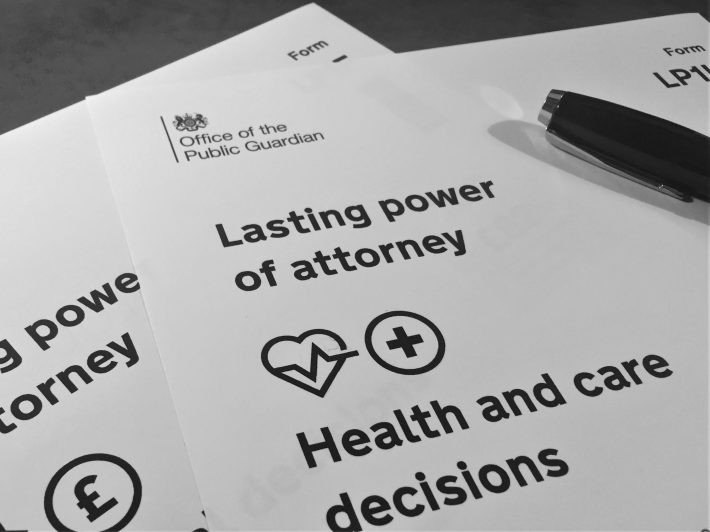Lasting Powers of Attorney

SPOTLIGHT ON LASTING POWERS OF ATTORNEY.
There are two types of Lasting Power of Attorney, that is, property and finance and health and welfare. You appoint people you trust to act as your legal attorney. You can only make these documents whilst you have mental capacity to do so.
An enduring power of attorney (EPA) were law until 2007, then lasting powers of attorney (LPA) was introduced. EPA’s are still good law and can be used for property and finance only. If the person who made it loses mental capacity, then this must be registered at the Office of Public Guardian (OPG) so you can continue to use it. If an EPA is in place, please check a health and welfare LPA is also in place, if not, take steps to make one.
I will look each in turn.
PROPERTY AND FINANCE
This deals with property and money. As soon as it is registered with the OPG it is live to use. Many clients pop it in the drawer and hope they never need it. However, if they need assistance in the future, it is there to be used. If you need assistance with bank accounts because of older age and mobility issues, then the registered Attorney can assist you. If you need to change utilities or claim on house or car insurance policies, then your attorney can assist you.
Have you planned for your future and the loss of mental capacity?
HEALTH AND WELFARE
This deals with the more social aspect of your life but only when you have lost mental capacity. Up until that point, you can deal with these issues yourself. If you go into a care home or hospital then your attorneys have the power over the local authority, social services and NHS medical staff to uphold your wishes and your decisions.
CHOICE OF ATTORNEY
This is a very important consideration. Is your potential attorney trustworthy? If you appoint your children do they get on? Can they work and make decisions together? Is your potential attorney able to deal with money , paperwork and sometimes distressing decisions about health? If any of these questions cause concern regarding your proposed atttorneys then maybe they are not suited to the role.
CERTIFICATE PROVIDER
This person is either a GP or solicitor. They certify that you have capacity to understand the documents you are signing before they are registered with the OPG. Alternatively, you can have a friend or neighbour, that you have known for more than 2 years as the certificate provider.
REGISTRATION
The LPA’s are live and ready to use when they are registered with the OPG. The cost of registration is £82.00 per power. Therefore, if you are a couple and have both powers of attorney then the total cost is £328.00. If you earn less than £12,000.00 a year and do not pay income tax then you are entitled to a 50% reduction. If you are in receipt of certain means tested benefits, in particular, the guaranteed element of pension credit, then you can have a complete waiver of the registration fee and pay nothing.
DELAY AT THE OPG
At the time of writing the OPG are 12 weeks behind with registration.
USING A SOLICITOR
A solicitor will add value to your application for lasting powers of attorney. They will ensure the right choice of attorney, they will be the certificate provider and make the application to the OPG. They will ensure the forms are not rejected due to incorrect dates. They will advise on any additional provisions needed in the document such as inheritance tax planning, providing accounts to a third party to ensure no fraud takes place and continuing use of a discretionary wealth manangement scheme in an investment. A “discretionary management scheme” is term applied to many of the investments and savings that you might already be aware of, such as pensions or Stock & Share ISAs, where day-to-day investment decisions are made by the fund manager.
...

